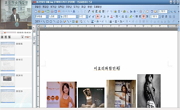본 연구의 목적은 논증 과정을 강조한 탐구 수업을 개발하고 학생들의 과학적 의사소통 능력에 어떠한 효과가 있는지 알아보는 것이다. 이를 위해 논증 과정을 강조한 탐구 수업 절차와 주...
http://chineseinput.net/에서 pinyin(병음)방식으로 중국어를 변환할 수 있습니다.
변환된 중국어를 복사하여 사용하시면 됩니다.
- 中文 을 입력하시려면 zhongwen을 입력하시고 space를누르시면됩니다.
- 北京 을 입력하시려면 beijing을 입력하시고 space를 누르시면 됩니다.
https://www.riss.kr/link?id=A109468692
- 저자
- 발행기관
- 학술지명
- 권호사항
-
발행연도
2024
-
작성언어
Korean
- 주제어
-
KDC
450
-
등재정보
KCI등재
-
자료형태
학술저널
-
수록면
194-207(14쪽)
- DOI식별코드
- 제공처
-
0
상세조회 -
0
다운로드
부가정보
국문 초록 (Abstract)
본 연구의 목적은 논증 과정을 강조한 탐구 수업을 개발하고 학생들의 과학적 의사소통 능력에 어떠한 효과가 있는지 알아보는 것이다. 이를 위해 논증 과정을 강조한 탐구 수업 절차와 주제를 개발하고, 고등학교 2학년 35명을 대상으로 약 한 달간 논증 과정을 강조 한 탐구 수업을 실행하였다. 탐구 수업의 효과를 확인 하기 위해 수업 전·후 실시한 과학적 의사소통 능력 검사 결과를 대응 표본 t 검정 방법으로 분석하여 그 효과를 확인하였다. 연구의 결론은 다음과 같다. 첫째, 논증 과정을 강조한 탐구 수업의 절차는 문제 인식-근 거 마련-주장의 정당화로 구성되어 있으며, 탐구 수업 의 주제는 지구과학과 관련된 ‘스펙트럼을 관찰하여 별의 대기 성분을 알아낼 수 있을까?’, ‘태풍은 해수의 온도에 어떤 영향을 미칠까?’이다. 둘째, 탐구 수업 적 용 후 학생들의 과학적 의사소통 능력은 유의미하게 향상되었다. 셋째, 학생들의 과학적 의사소통 능력을 유형별·형태별로 구분했을 때, 과학적 주장형과 글과 표에서 효과가 있음을 확인하였다. 연구 결과를 바탕 으로 과학적 의사소통의 유형과 형태가 상호작용하는 탐구 수업을 설계해야 함, 학생들의 논증 과정을 미시적으로 확인하는 연구가 필요함을 제안하였다.
다국어 초록 (Multilingual Abstract)
The purpose of this study was to develop an inquiry lessons that emphasizes the argumentation process and to find out what effect it has on students’ scientific communication skills. To this end, we developed an inquiry lessons procedure and topic t...
The purpose of this study was to develop an inquiry lessons that emphasizes the argumentation process and to find out what effect it has on students’ scientific communication skills. To this end, we developed an inquiry lessons procedure and topic that emphasized the argumentation process, and conducted an inquiry lessons that emphasized the argumentation process for about a month targeting 35 second-year high school students. In order to confirm the effect of the inquiry lessons, we analyzed the results of a scientific communication skill test conducted before and after the lessons using the paired sample t-test method. The conclusions of the study are as follows. First, the procedure of the inquiry lessons that emphasized the argumentation process consists of problem recognition-establishing evidence-justifying the claim, and the topics of the inquiry lessons are related to earth science, such as ‘Can we find out the atmospheric components of stars by observing their spectra?’ and ‘How do typhoons affect the temperature of the ocean?’. Second, the students’ scientific communication skills significantly improved after the inquiry lessons was applied. Third, when the students’ scientific communication skills were classified by type and form, it was confirmed that the scientific argument type and writing and tables were effective. Based on the results of the study, we suggested that inquiry lessons should be designed in which the types and forms of scientific communication interact, and that research is needed to microscopically confirm students’ argumentation processes.
목차 (Table of Contents)
- ABSTRACT
- Ⅰ. 서론
- Ⅱ. 연구 방법
- 1. 연구 절차
- 2. 논증 과정을 강조한 탐구 수업의 개발
- ABSTRACT
- Ⅰ. 서론
- Ⅱ. 연구 방법
- 1. 연구 절차
- 2. 논증 과정을 강조한 탐구 수업의 개발
- 3. 실험 설계
- 4. 연구 시기 및 연구 참여자
- 5. 검사 도구 및 자료 분석
- Ⅲ. 연구 결과 및 논의
- 1. 논증 과정을 강조한 탐구 수업 개발 결과
- 2. 논증 과정을 강조한 탐구 수업의 효과
- Ⅳ. 결론 및 제언
- 국문요약
- References
동일학술지(권/호) 다른 논문
-
‘계절의 변화 원인’ 단원 지도에 대한 초등예비교사들의 인식분석
- 대한지구과학교육학회
- 이용섭
- 2024
- KCI등재
-
미래형 교육과정에서 실효성 향상을 위한 암석교육방안 제안
- 대한지구과학교육학회
- 송진여
- 2024
- KCI등재
-
연구회 참여 교사가 행위주체성을 성취하는 과정은 어떠한가 : 근거이론적 접근
- 대한지구과학교육학회
- 최지선
- 2024
- KCI등재
-
가상현실(Virtual Reality) 기반 부산 국가지질공원 야외지질학습 프로그램 개발 : 가상학습환경 맥락을 중심으로
- 대한지구과학교육학회
- 최윤성
- 2024
- KCI등재





 ScienceON
ScienceON eArticle
eArticle





